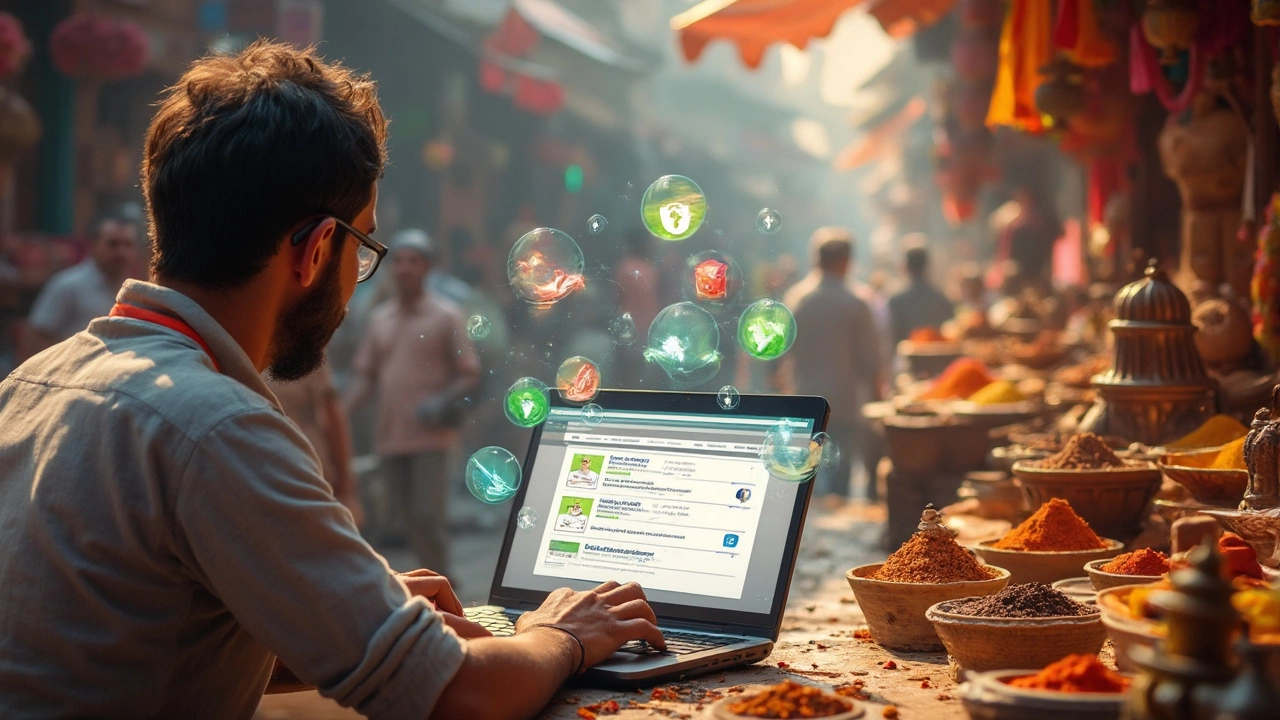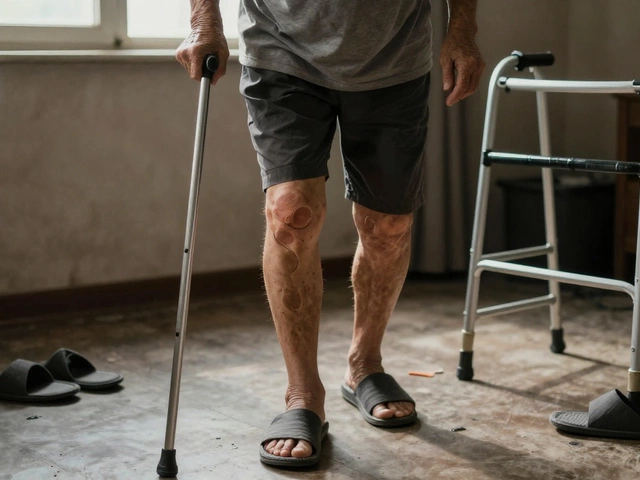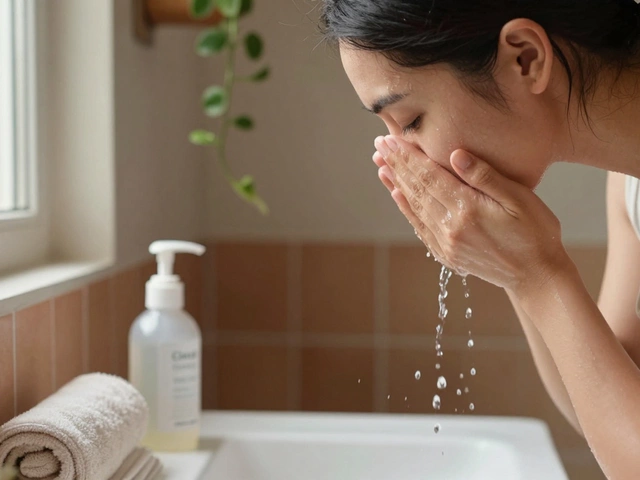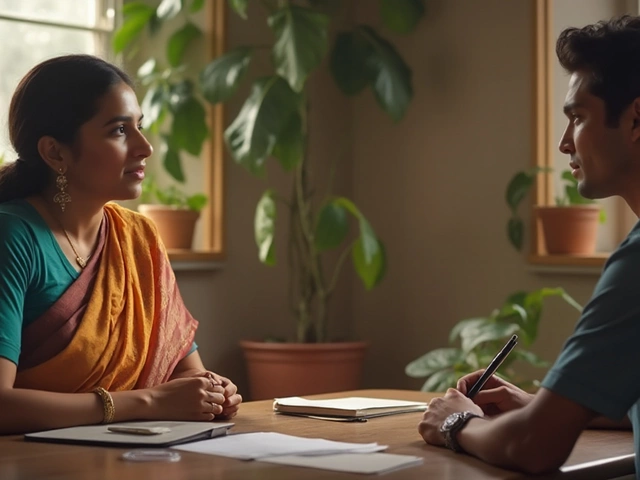Ever found yourself wondering if you can trust that online pharmacy screaming 'Up to 70% off on all meds!'? You're not alone. While the digital age offers unparalleled convenience, it can also feel like a minefield when it comes to purchasing medication online. So, how do you separate the wheat from the chaff?
First off, every legitimate online pharmacy requires a prescription from a licensed healthcare provider. No script, no service. That's rule number one. Also, authentic pharmacies should have a physical address and direct customer service contact. If all the contact info is buried six clicks deep or doesn't work, that's a red flag waving.
And let's talk about those ridiculously low prices for a second. If it sounds too good to be true, it probably is. Sure, we all love a good deal, but your health is not the area to gamble on. Often, these too-good-to-be-true sites are selling counterfeit or expired drugs, so tread carefully.
- The Rise of Online Pharmacies
- Identifying Legitimate Pharmacies
- Red Flags: Spotting the Fakes
- Tips for Safe Online Shopping
- Resources for Verification
The Rise of Online Pharmacies
Remember the days when getting your meds meant a trek to the local pharmacy? Well, the digital boom has changed that game for good. The rise of online pharmacies has made purchasing prescriptions as easy as a few clicks—and it’s not just about convenience.
The growth of e-commerce pharma has been staggering. According to a report from the Internet Pharmacy Consumer Guide, the global online pharmacy market is expected to hit a whopping $150 billion by 2027. What's driving this explosion? A big factor is accessibility. Not everyone lives around the corner from a pharmacy, and for those in remote areas or with limited mobility, online access is a game-changer.
We can’t ignore the cost factor either. Many legitimate pharmacies online can offer discounts that brick-and-mortar shops can't match. It boils down to fewer overheads—no rent, fewer staff, and often direct distribution.
How It All Started
The first wave of online pharmacies appeared in the late '90s, riding the crest of the internet's rapid expansion. Initially, it was a bit of a Wild West; regulations lagged behind, and dodgy operations ran rampant. Fast forward to today, regulation and oversight have thankfully caught up in many regions, making it safer for everyone.
In countries like the US, organizations like the National Association of Boards of Pharmacy (NABP) provide accreditation to vetted online pharmacies, ensuring they're not just running on credibility alone.
Benefits of Buying Medications Online
- Convenience: Order any time, anywhere. No more lining up at the counter.
- Privacy: For some, there's an added comfort in managing health needs discretely.
- Broader Selection: Access to medications that might not be stocked locally.
But here’s the kicker: as attractive as these benefits are, safe online shopping crucially hinges on ensuring the pharmacy you’re dealing with is legit. It’s all too easy to get swept up in the lure of low prices and convenience, so stay sharp and prioritize your health first.
Identifying Legitimate Pharmacies
Alright, let's cut through the noise and get to the nitty-gritty of finding legitimate pharmacies online. Imagine this like detective work, but without the trench coat. There are specific clues you need to look out for that scream 'We're the real deal!'.
1. Verified Pharmacy Websites
First, make sure the site is verified by a trusted source. Look for seals of approval like the Verified Internet Pharmacy Practice Sites (VIPPS) in the U.S. or the General Pharmaceutical Council (GPhC) registration in the U.K. These badges aren't just for show—they're indicators that the pharmacy meets standards for safety and professionalism.
Here's a quick hint: If you see these seals, click on them. They should link back to the certifying organization's site, which can confirm legitimacy. If nothing happens, that might be your cue to move on.
2. Prescription Requirement
A dead giveaway of a safe online pharmacy is one that insists on a prescription. Legitimate ones have policies in place that require you to provide a prescription from your healthcare provider. If a site doesn't ask for one, you should start being suspicious.
3. Contact Information Accessibility
You also want to check their contact information. A real pharmacy won't hide from you—they'll proudly list their phone number, email, and physical address. Try reaching out to their customer service; a responsive team is a good sign you're dealing with professionals.
4. Regulatory Compliance
Regulation is no joke in the pharmaceutical world. Pharmacies that comply with national and international regulations are bound to be more reliable. Check if they comply with laws and standards specific to their location.
| Country | Regulating Body |
|---|---|
| United States | FDA, NABP |
| Canada | Health Canada, CIPA |
| European Union | EMA |
Keep these tips in your back pocket whenever you’re shopping for drugs online. It’s all about safety and ensuring what you’re buying is legitimate. Trust your intuition—if a site gives you shady vibes, there's probably a reason.

Red Flags: Spotting the Fakes
We've all seen those sketchy sites promising the world of meds at flashy prices. But when it comes to your health, skimping on safety can be costly. Here’s what to watch out for so you don’t fall into those online traps.
No Prescription Required
If an online pharmacy is handing out meds without asking for a prescription, it's a massive red flag. Legitimate pharmacies, without exception, verify your needs through a doctor’s prescription. Ignoring this is like burning money, or worse, gambling with your health.
Unknown Address or Contact
A genuine online pharmacy will readily share their physical address and actual working contact numbers. If a website doesn't clearly display this info or provides fake contacts, steer clear. You need someone to talk to if things go south.
Too-Good-To-Be-True Prices
The old saying, "You get what you pay for" holds water when you're buying meds online. Dirt-cheap prices often mean you're getting compromised or outright fake products. Keep an eye out for prices that seem suspiciously low.
Unsecured Website
If you notice the website URL doesn’t begin with ‘https’, it's like leaving your wallet on a busy street. Security is key when providing your personal and payment information. Always stick to secure sites.
John Norton from the National Association of Boards of Pharmacy once stated, "A secure website and prescribed verification process are signs of a trustworthy online pharmacy".
Poor Design and Errors
Professional pharmacies invest in a solid online presence. If a site is riddled with typos, bad photos, or broken links, it's not a place where professionals are handling your medicines.
No Engagement in Pharmacy Practice
If your interactions are only through automated forms with no real inquiries about your health needs, it's a bad sign. Real pharmacies care about your medication—fake ones just want your cash.
Stay sharp and use these tips as your armour when exploring pharmacists in the online world. It’s not just about saving a few bucks; it’s about taking care of your health.
Tips for Safe Online Shopping
Buying meds online should feel as secure as snuggling with your favorite comforter. But how do you make sure you're not playing roulette with your health? Here are some rock-solid tips to keep you safe while buying from an online pharmacy.
Check for VIPPS Accreditation
First things first, check if the online pharmacy is VIPPS (Verified Internet Pharmacy Practice Sites) accredited. This is like the golden seal of approval by the pharmacy world. It means the site meets strict licensing and inspection requirements.
Look for Secure Websites
Make sure the website is secure. Check for 'https://' in the URL. This ensures that your information is encrypted and safe from online snoopers.
Verify the Pharmacy License
Every legit pharmacy online should have a license. Usually, they'll display it proudly on their website. You can double-check this with your local pharmacy regulator for added peace of mind.
Be Wary of Super Cheap Prices
If the price of a drug seems way lower than everywhere else, it could be a red flag. It might mean the product is fake or expired. Stick with pharmacies that have more competitive pricing, not rock-bottom deals.
Privacy Policy Matters
Does the pharmacy have a clear privacy policy? They should explain how your data is used and stored. If there's no privacy policy, it's like leaving your front door unlocked.
Ask About the Pharmacist
A real online pharmacy should offer access to a licensed pharmacist who can answer your questions. If you have no way to contact a pharmacist, it’s a major warning sign.
By following these tips, you can ensure your online drug purchases are as secure as hitting the pillow at night. And remember, trust your instincts. If something feels sketchy, it probably is!
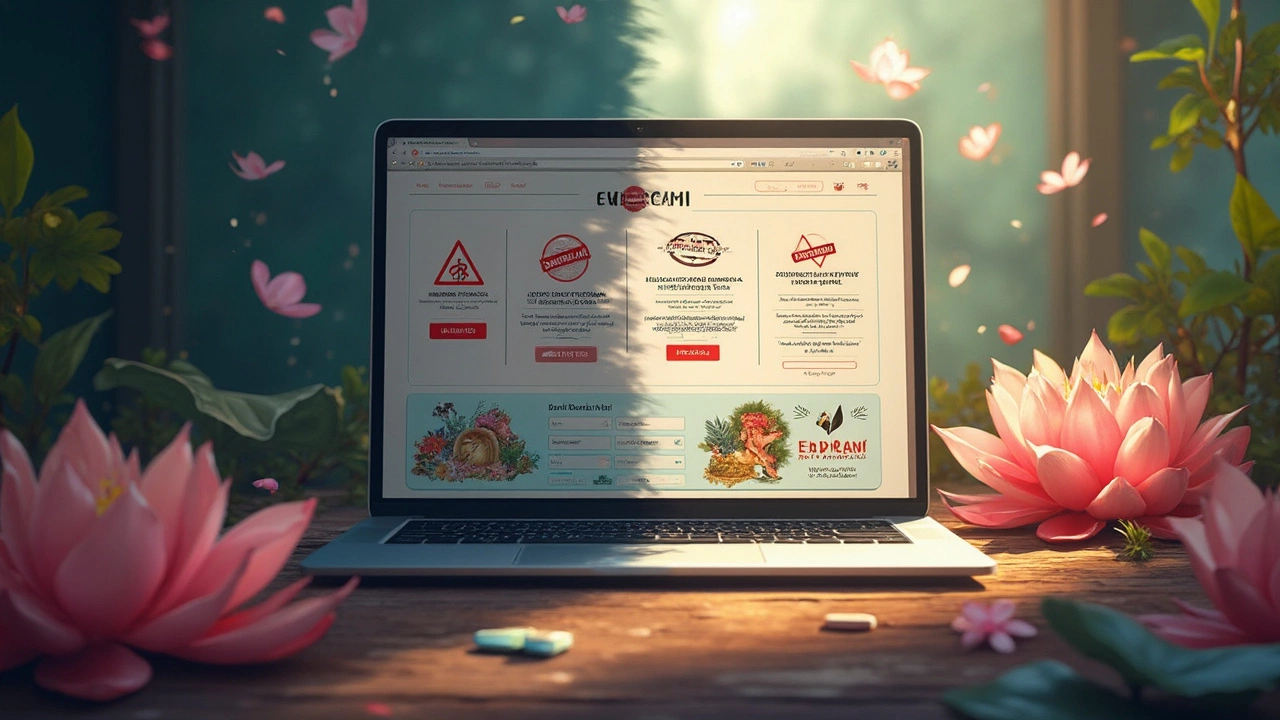
Resources for Verification
Alright, so you're ready to start your online pharmacy journey but want to ensure you're buying from a legit establishment. Smart move. Fortunately, there are some reliable resources that can help you verify the legitimacy of an online pharmacy.
Look for Accreditation
One of the simplest methods is to check if the pharmacy is accredited by a recognized body. In the U.S., look for the VIPPS (Verified Internet Pharmacy Practice Sites) seal. This accreditation is provided by the National Association of Boards of Pharmacy (NABP) and indicates that the pharmacy complies with the state and federal regulations.
Check with Regulatory Authorities
For those outside the U.S., there are similar accreditations and resources. For instance, the Medicines and Healthcare products Regulatory Agency (MHRA) lists all legitimate pharmacies in the UK. Likewise, the Canadian International Pharmacy Association (CIPA) is a key resource for Canadian consumers.
Online Tracking Tools
Utilize online tools such as PharmacyChecker and LegitScript, where you can search the pharmacy's name and find reviews or any red flags associated with it. These platforms help verify the pharmacy's credentials, ensuring you buy from safe online drugs providers.
Extra Tips
If a pharmacy isn't listed in any regulatory body or database, that's your cue to walk away. Also, remember that a trustworthy pharmacy will never ask for confidential information without first establishing a secure connection. Always look for HTTPS in the website address.
| Region | Accreditation Body |
|---|---|
| USA | VIPPS by NABP |
| UK | MHRA |
| Canada | CIPA |
